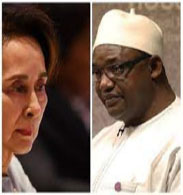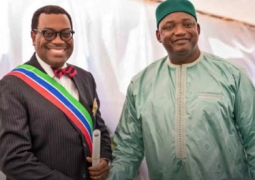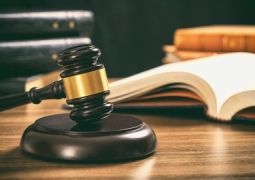
Addressing Judges of the superior courts and legal practitioners and other members of the public at the court complex in Banjul on Sunday, the President lectured that “at the global level, The Gambia continues to pursue the court case against Myanmar for violating the rights of its Rohingya Muslim minority.
“To seek justice for the Rohingya, we filed the case on 11th November 2019 at the International Court of Justice with the support of the Organisation of Islamic Cooperation.”
In flashback, the Gambia government through its legal arm headed then by Ba Tambedou, the then Attorney General and Minister of Justice, who has also served as a special assistant to the prosecutor at the International Criminal Tribunal for Rwanda, with the support of the Organisation of Islamic Conference (OIC) around May 2018, started a campaign against the Myanmar government. This led to the eventual suing of Myanmar by the country to the International Court of Justice (ICJ), United Nation’s highest legal body and one of the most effective and influential legal entities in the world.
A 46-page application had been tendered to the ICJ by The Gambia, which alleged Myanmar of mass murder, arson, rape, gang rape, torture, enforced disappearance, sexual violence and destruction of Rohingya occupied communities and set of other grave crimes.
Interestingly, Myanmar has also been alleged of burning down and destruction of “Rohingya homes, mosques, madrassas, shops and Qur’ans.”
The government of Myanmar has denied any wrongdoing, but several research and investigations by reputable human rights organisation such as Human Rights Watch and Amnesty International have supposedly found out the cleansing of the Rohingya by the military which was highly supported and backed by the Myanmar government.
This move by The Gambia was record-breaking history as it was the first time in about 70 years that a state not connected to a crime filed against another state, and was thus, hailed by many including a renowned Myanmarese rights activist Ro Nay San Lwin, co-founder of the Free Rohingya Coalition. Not only that, it was not even a neighbour state or a regional power that was trying to show its might that sued Myanmar, but a small country more than 7,000 miles away.
Gambia seeks for imposition of heavy punishment on the perpetrators, compensation for affected Rohingya victims and an immediate stop to the crimes and no further violations against the Rohingya Muslims.
In January 2020, the International court issued provisional measures ordering Myanmar to take certain actions to protect the Rohingya from genocide and preserve evidence of genocidal acts by perpetrators, the Myanmar security personnel.
However, Myanmar had not respected those provisional measures by the court as it continued perpetration of several grave violations against the Rohingya minorities, according to reports.
The case would be heard at the international court on 21 February to 28 February 2022 in hybrid, which means some would be present at the court while others would participate online.
Unfortunately for Myanmar, their then leader when they were sued by Gambia has been toppled by the Myanmar military and has been slapped with several sentences in a series of trials. Thus, the Myanmar military junta is expected to proceed with the case at the ICJ.
“Representatives of Myanmar's junta are expected to challenge the jurisdiction of the court to hear allegations the country committed genocide against its Rohingya minority in a fresh round of hearings from Feb. 21, the then Attorney General of Gambia, Ba Tambedou, who took the case to the court, has been quoted saying to Reuters few years ago, before he left that position in 30th June, 2020.
President Barrow has therefore assured: “My government is committed to fighting the case to its logical end to restore the rights of the Rohingya, who continue to suffer from genocidal crimes.”
Read Other Articles In Headlines




